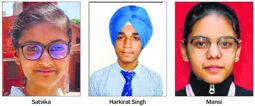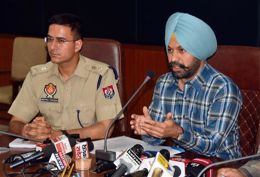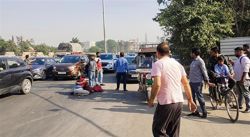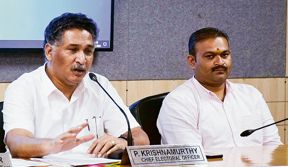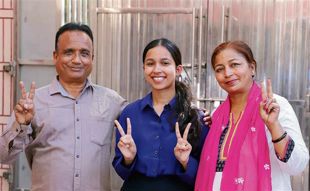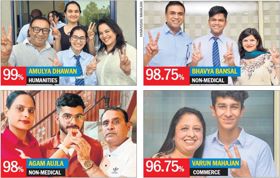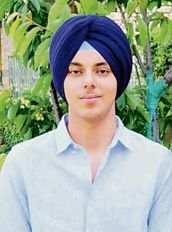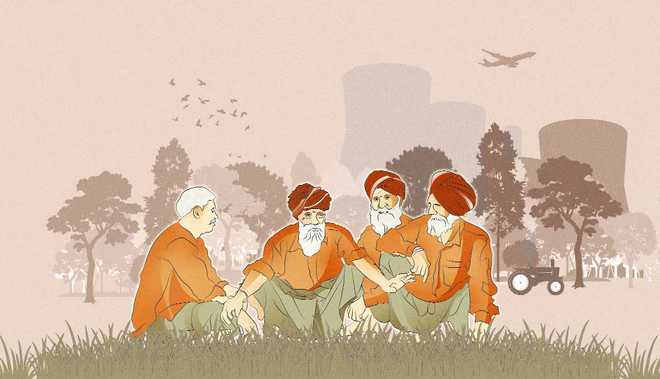
Illustration: vishal prashar
Sanjeev Singh Bariana
If wisdom comes with age, Chiranji Lal ought to be a sage. At 100-plus, he sounds like one. When asked what in his view has been the most glaring change in all the years he’s spent in his village — Jiwansinghwala in Bathinda — his answer is abrupt. “Love, kaka, is the biggest casualty of your so-called development. Even the normal family structure has collapsed,” he says.
He elaborates without any prodding. “Tayaji, Chachaji and Bhuaji, lifelines of a normal family, have been relegated to the back. They are now merely decoration pieces.”
Located 20 km from Bathinda, Jiwansinghwala has a population of 6,000; 2,800 of them are voters. The village, which looks more like a town, is inhabited by people whose forefathers had shifted from Roorke Kalan, near Barnala, about 150 years ago.
Chiranji Lal is the undeclared spokesman of the village elders. They nod as he makes his point clearly and without a break, amazing for a man of his age. “Comes from years of consuming ghee,” an elderly gentleman laughs as I point it out, but the grand old man himself gives a stern look: “Kaka, don’t interrupt.”
I do, and ask him the reason for his deduction when the feeling I get is that the ‘new village family’ lives a life that is easier at so many levels despite the several apparent problems. “Take family functions, like a wedding, for instance,” he says, “they are pure drama now, nothing more. All the participants are mere actors under camera lights. It was meant to be a collective synergy of an entire family. Mamma took the shagun to the bridegroom’s place, Taya was the overall incharge, Chacha did the spadework and Bhua was the head organiser of the rituals.”
But that still happens and people do not have the time anymore, I stop him short. “Where’s the love?” he repeats. “It’s a ritual now, just formality, drama.”
The wedding preparations, he goes on, used to start weeks before the scheduled date of the ceremony. “Besides the joint family of the hosts, dozens of close relatives would troop in for the long-drawn event, participating even in jobs like preparing food.”
From the nostalgic and philosophical, Gurdarshan Singh, 75, lists the social implications of all that goes for the new. “The change has accelerated during the past decade. Without an iota of doubt, it is the mobile phone that has ushered in a social change with far-reaching implications for future generations. It threatens the link with the old.”
Darshan Singh, 75, who’s been quiet till now, feels agitated at the mention of the mobile phone: “It is beyond my comprehension how this one instrument has changed life. I heard this little girl shout back at her grandmother ‘tu ki laina?’ (What business is it of yours?) when asked whom she had been talking to for 10 minutes.”
A teenager listening in to my interaction with the elders tells me in a hushed tone: “They talk of love and relations. Haven’t they fought over land and property for ages? And what do they know about what we do on the phone? If we chat, it is with people. We are connecting with relatives and friends who are far away. Isn’t that human?”
That inspires me to try and steer the conversation towards the transformation that mechanisation brought. But 65-year-old Gurcharan Singh is as abrupt as Chiranji Lal: “Kehri tarakki? (What progress?) Ours has been among the most prominent villages in the region for over 100 years. Roads, television and mobile services have lent comfort but all monthly bills put together lead to tension rather than any comfort. Farmers were under debt then. They are under debt now.”
On the availability of medical facilities, the youngest of the lot, 47-year-old Rakesh Kumar, takes the lead: “Despite increased medical care, more than half of a common man’s life is spent doing the rounds of doctors, who are usually fooling us. Our Sohan vaid used to give us a simple pudi (dose) and a person would get fit. Now a doctor recommends 20 tests even for common fever.”
He’s not finished. “Compare any young man, even a bodybuilder, with my grandfather, who had dollops of ghee daily till he was about 70. He is still very fit at more than 100,” he says, as he narrates the story of two brothers. “They drank 3 litres of milk at a time. One of them even took on a stray bull. The neighbourhood boasted of several more enviable pillars of human strength”.
Gurcharan Singh recalls how “life wasn’t stagnant even without the so-called facilities of communication or transportation. For a civil court case, we walked up to Patiala along the canal for more than 150 kilometres. I am peeved at seeing my grandson sitting with his eyes glued to the small screen constantly with a frown. He does not want to go out”.
As a youth, he adds, “we always felt the urge to engage ourselves physically. After childhood games of bandar keeli, khiddo (softball) and gilli danda, all boys took to kabaddi or wrestling. We walked for days to see these games in melas even in far-off places. Travelling was equally important then. We walked or took a privilege ride on bullock carts”.
“Children were naughty but the diktat of the teacher ran firm,” reminiscences Darshan Singh. “People used to celebrate the day Master Tarlok came to school without his tiffin box. It meant he would go home for lunch. Girls played with boys even late in the evenings. I remember a boy who after he winked at a girl, during a mela, would feel as if he had conquered some country. Education for teachers was akin to religion.”
I turn to the relatively young Rakesh Kumar on why he does not feel that life has become convenient. “I am not sure,” he answers. “My father brought the same uniform for us four brothers. We cleaned the lanterns and filled oil in the evening. We read under the same light and I don’t remember anyone wearing spectacles. A normal house did not have a matchbox. We got the embers from neighbours. We ate bajra because wheat was a privilege. Mechanisation ate away the worth of the pride ride of camels.”
Sarpanch Binderjit has the last word. Surely, I ask him, there have to be positives. He chooses to be sarcastic. “Of course, there was a time when villagers would stay away from politics; no one even recognised their MLA Sujan Singh way back in the late 1960s. These days all politicians come to each house, personally, offering sharaab and paisa.”
Participation in democracy should be celebrated, I argue. Before Binderjit can answer, Chiranji Lal butts in: “Love is gone, kaka. Our togetherness was democracy, what else?”





















